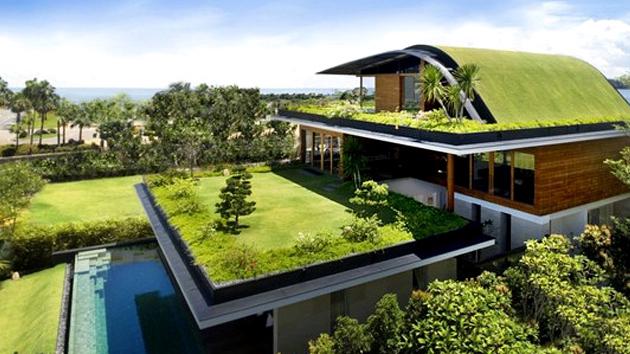Not only do sustainable houses help decrease rising costs of energy consumption and the environment, they also impart additional value to your property, according to real estate agent Lisa Roberts, they can draw in thousands of dollars in comparison to non-eco houses. Installing energy efficient features in your house notwithstanding, the market, explained Roberts, will give respect to your property in its resale.
The Demand For Sustainable Houses
The demand for sustainable houses is continuously increasing and people are more than willing to pay more for properties that have sustainable features such as solar panels, water tanks, solar-powered hot water, and other energy savers. Full eco-renovations are being done by homeowners on their properties, in fact, not only to reduce their cooling and heating costs but to raise the value of their properties.
Architects are now actively promoting sustainable houses by designing homes which maximise cross-ventilation that prevents the loss of heat during winter and absorbs the heat during summer. One such architect is Environa Studios’ Tone Wheeler. According to Wheeler, sustainable houses are less a testament to energy conservation than to plain and simple comfort.
Sustainable houses – with a thermal mass that is higher – are more comfortable for a homeowner to live in than houses that are heavily dependent on heating and air conditioning. Thermal mass stores heat from sunlight during the day and then re-releases it when necessary.
New architectural designs are now capable of trapping radiant heat for circulation around the home in winter and blocking or shading this same heat in the summer.
New South Wales and Victoria
In New South Wales, water and energy reduction targets aimed at new homes are set by the Building and Sustainability Index or BASIX. In July this year, reduced target for new residences increased from 25% to 40%, changes which, explained Director of Sustainability at the Department of Planning, Bruce Taper, lead to more utilisation of shading, glazing, and generally better choices for designing houses. Households that are compliant with BASIX can save between $300 and $600 yearly on their energy bills.
These savings could save the family a beginning amount of $10,000 in interest payments within its lifespan. In Victoria, what they have is called the five star system, in which star rating denotes the efficiency on appliances such as whitegoods. The Australian Building Code Board (ABCB) has applied this star system for their development of new housing. Most states have adopted the same star system, taking after Victoria’s lead.
Why Your Property’s Value Decreases
To be compliant with ABCB standards, there should be: increased levels of insulation, orienting and glazing of the house to ensure living spaces are in the northerly direction, draught-proofing, and installations of energy efficient tap water ware, solar-powered hot water systems, energy saving appliances, and solar panels.
Danielle King, spokesperson for Green Moves Australia, has cited a Canberra study that showed a single star energy rating is equivalent to a real estate value increase of 3%, enabling a five-star house to profit more – at 12% — than a one-star residence if the homeowner decides to sell.
Richard Reed, property and real estate professor at Deakin University, put it succinctly: when your neighbours all have sustainable houses and you do not, your property will have the lowest value.



